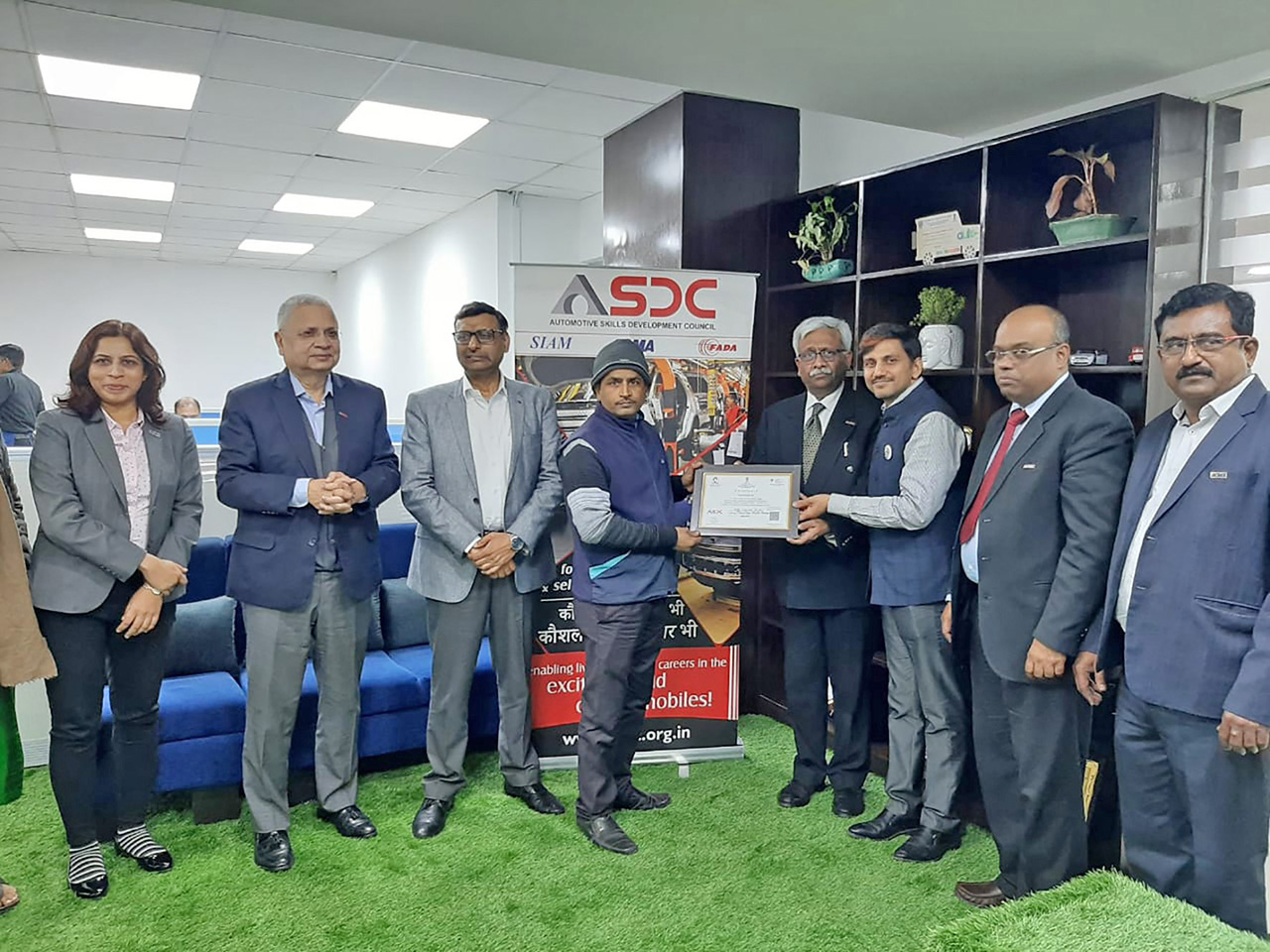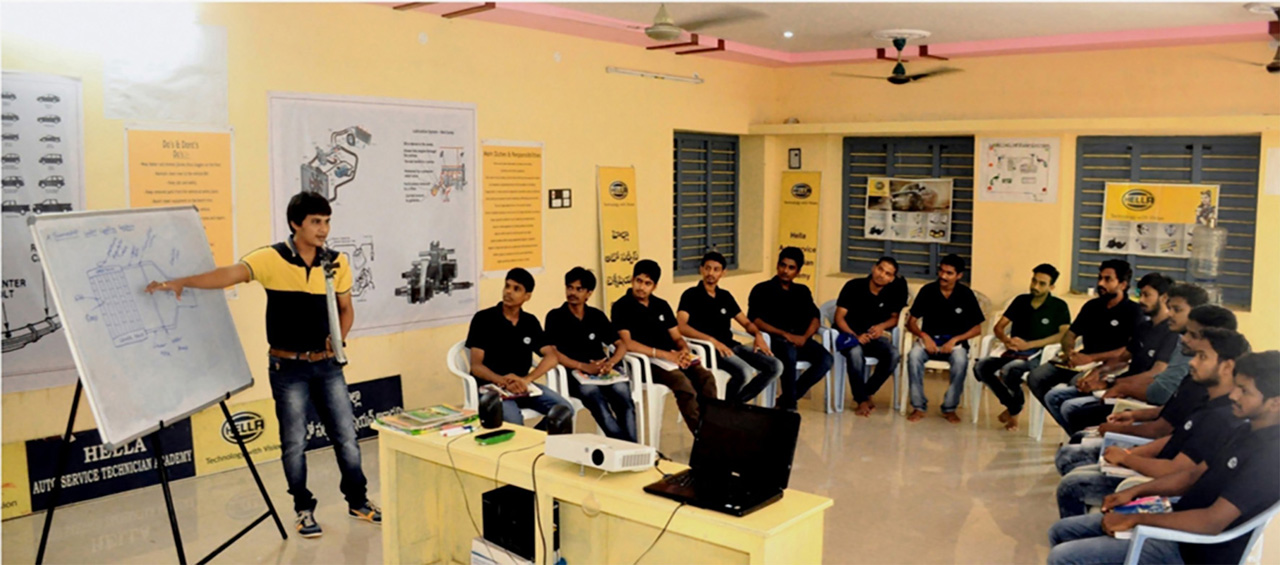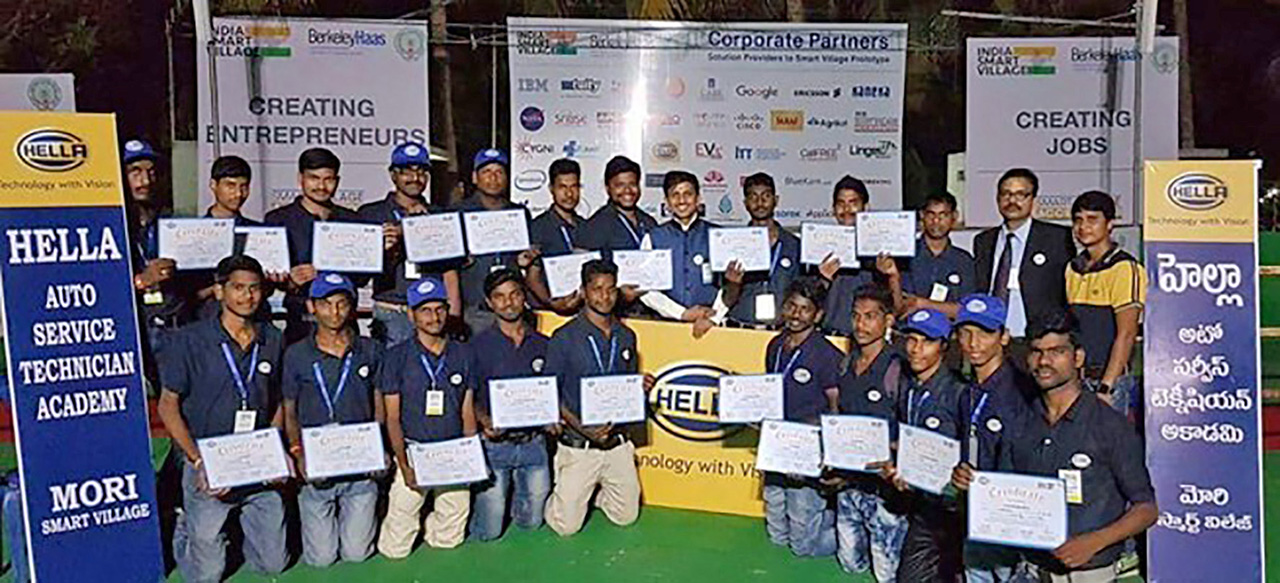The independent aftermarket in India needs a movement of its own to be able create space for skilled technicians. The article highlights how Hella has been taking huge steps in this direction
The current crisis has shifted the preference towards personal mobility and this is visible for both two-wheeler and four-wheeler traffic flow to the automotive servicing workshops. Whereas this is positive news for lakhs of independent workshops and automotive technicians around the country, servicing the vehicles of today needs a movement of its own to organise, standardise and digitize the independent aftermarket’s end-to-end value chain. Today, the automotive industry is a significant contributor to the Indian economy and the sector has moderate direct employment and significant indirect employment.

It is estimated that the sector provides direct and indirect employment to more than 19 million people and a lot of them are engaged in servicing the vehicles in operation. A large workforce is employed by dealers, distributors, retailers and workshops in these activities. As per the latest figures from the Automotive Component Manufacturers Association (ACMA), 64.5 thousand crore is the industry size of the aftermarket, which doesn’t include tyres, batteries and specific consumables. It’s obvious that this industry deserves investments in its complete value chain but unfortunately any visit by end consumers to a roadside garage or workshop or automobile servicing clusters demonstrates otherwise.
This has a huge negative consequence on the quality of automobile technicians and investment commitment by the industry stakeholders in their capacity-building. Vehicles of today have an ever-increasing content of electronics and software and thus their servicing and repair needs constant upgrades of skills and new methods of repairing. Lack of training infrastructure related to modern automotive technology, repair and maintenance data management and general lack of respect for automobile technicians in society is fast eroding the pool of professionally qualified technicians in the industry.
Added to it is lack of choices for affordable and reliable modern diagnostic tools, inadequate popularity of digital parts catalogues and missing online support on newer vehicle models by OEMs to independent workshops. This leads to a deteriorating consumer experience for the independent aftermarket industry in India and poses a threat to its survival and growth. Nothing less than a movement can save the situation. The independent aftermarket has to fast catch up and organise its complete value chain and work on standardisation of parts, services, channel structure and data management and execute implementation of digital tools.

In a Tech Force Foundation report from 2020, it was noted that the industry would be short by approximately 6,42,000 technicians – automotive, diesel and collision – between now and 2024. In India, a large number of the technicians gain their skills and trade expertise via practice, on job training and by being an apprentice under their employee or peers. However, they don’t have any document to show for their skills and hence cannot attain high positions in the organised automotive sector.
The Hella Initiative
Hella being one of the leading players in the global automobile component industry focuses not just on providing high-quality and technologically advanced parts and accessories but also takes initiatives to skill and train technicians and provide them constant technical help through a hotline around the world to ensure high-quality fitment. In this regard, building the technical capability of its Indian technicians of automotive workshops helps Indian consumers to experience world-class quality service and at the same time it benefits the overall society by creating and protecting the employment of the less privileged workforce in the automobile servicing industry.
The company aims to create a sense of pride and respect for mechanics and technicians by providing high-quality workmanship for maintaining Indian automobiles and keeping them safe and fit so that they don’t get involved in road crashes. To achieve this Hella has adopted a multi-dimensional approach to ensure respect, training and social recognition of these technicians as this ensures the company’s vision of arresting road deaths. With the aim of supporting the rise of technicians in India, Hella has got hundreds of aspiring future technicians, experienced roadside technicians and experienced workshop technicians certified and assessed under the Automotive Skills Development Council (ASDC).
These technicians did not have any kind of certification or diploma but were skilled in their trade due to years of experience. Some of the candidates were freshers who aspired to be future technicians. All the technicians who cleared the assessment were awarded with an ASDC certificate recognised by the Government of India. With these certificates the technicians can get jobs in reputed original equipment supplier (OES) or independent aftermarket (IAM) dealerships and they also get the provision to obtain bank loans to start their own business. Hella is moving forward with the aim to create a large community of certified technicians.

Many start-ups and IAM companies also are working to solve this problem through innovative solutions. On-board diagnostics, preventive service forecasts, online trainings through visual and augmented reality are a few areas which will witness amazing innovations in this industry. All this together is no less than a movement for any traditional industry like the independent aftermarket sector in India. Hella has built training centres to provide basic job skills and develop knowledge to suit the industry’s need and empower the candidates to offer their best skills to the industry.
Students are trained in courses approved by the National Skill Development Corporation (NSDC) in the name of Automobile Service Technicians Level 3. The centres are currently operating in Andhra Pradesh. Students after going through the training have been placed with different OES and IAM workshops and multi-brand workshops. Many of them also opt for entrepreneurship and become eligible to open their own setups with some financial support. The results have been really encouraging. It has helped to positively impact the hugely unemployed youth in Andhra Pradesh. A trained technician will help the automotive industry fight spurious and fake spare parts and thus will fuel the vision of road safety. “It’s our duty to make skills aspirational. We have to create an environment where we get away from the obsession of degree and designation and embrace a society respecting skills and purpose. We must become the skill capital of the world,” comments Rama Shankar Pandey, Managing Director, Hella India Lighting Ltd. The task of training lakhs of technicians is no less than a movement but the current trend in the industry confirms that this movement has just begun and has a promising future to build further with new players, including online garage aggregators also joining the force.